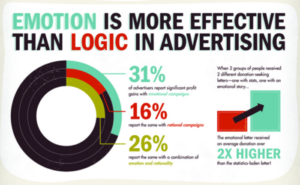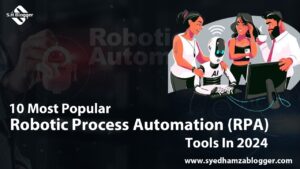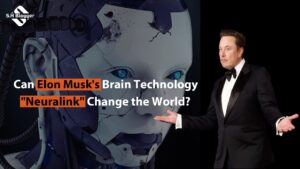Introduction:
In the field of digital marketing, the question of automation comes into view often. As you see technology is getting more advanced day by day. However, the possibility of automating various aspects of marketing activities has become increasingly attainable. Automation tools give efficiency and scalability from email campaigns to social media management. As we thoroughly discover automation we must know that it is important to examine its potential implications on the future of digital marketing. You may wonder whether Will digital marketing be automated entirely. will there always be a need for human creativity and strategic thinking? Of course, you may have this thought if you are a digital marketer or a business owner.
In this article, we’ll explore this question. We will also analyze the current state of automation in digital marketing.
Lorem ipsum dolor sit amet, consectetur adipiscing elit. Ut elit tellus, luctus nec ullamcorper mattis, pulvinar dapibus leo.
Automated Marketing Tools and Technologies:
1. Email Marketing Automation Platforms:
Mailchimp: the foremost tool we have for automation is Mailchimp. It gives extensive automation features for email campaigns. It includes drip campaigns, segmentation, and personalized messaging.
HubSpot: It provides tools for automating email workflows, lead nurturing, and CRM integration as well.
Active Campaign: these Offers automation capabilities for email marketing, sales, and customer engagement. It uses advanced segmentation and behavior-based triggers.

2. Social Media Management Tools:
Here are the following tools specifically used for social media handling:
Hootsuite: This tool Automates scheduling, posting, and monitoring across multiple social media platforms. It keeps in check the analytics and reporting features.
Buffer: The commonly used Buffer helps you Simplify social media management with scheduling. It also helps in publishing and engagement tools. That is not just it these tools help in performance tracking.
Sprout Social: This tool gives automation for social publishing, monitoring, and customer engagement. It helps to robust analytics and reporting functionalities.

3. Content Management Systems (CMS):
WordPress: This widely used tool offers plugins and automation tools for content publishing, SEO optimization, and user engagement tracking.
Drupal: For high-quality content creation, publishing workflows, and website management this tool Provides automation features. It is also durable for customizable modules and integrations.

B. Benefits and challenges of current automation solutions:
1. Benefits:
Increased Efficiency: When we look into Automation it helps with repetitive tasks and also saves your time. You can say that it is a resourceful asset for digital marketer.
Enhanced Targeting: Another prominent feature of Automation is it allows personalized messages. It also targets campaigns based on user behavior and preferences.
Improved Analytics: Automation tools are a great source of providing detailed data insights. It allows marketers to make data-driven decisions and optimize campaigns for better results.
2. Challenges:
Complexity: when we see challenges of automation we see that Implementing and managing automation tools can be completed. It requires technical expertise and training for effective usage.
Lack of Personalization: if you have Over-reliance on automation then it may result in generic messaging. It also reduces personalization which may impact audience engagement and conversion rates.
Integration Issues: Here is another potential challenge you may encounter which is integration. Integrating multiple automation tools and platforms can be challenging. It eventually leads to data silos and inefficiencies in campaign management. Automation requires very careful planning and coordination.
Analysis of Current Trends in Digital Marketing Automation
Automation has become a milestone of marketing success with the growing digital marketing demands.
One popular trend is the widespread usage of artificial intelligence (AI) and machine learning algorithms. These technologies help marketers to analyze large amounts of data. It helps personalize customer experiences as well as optimize campaign performance in no time.
You will see another key trend which is the emphasis on personalization at scale. Marketers are using automation tools to deliver highly relevant messaging to consumers across multiple channels.
Automation helps brands to create professional email campaigns and personalized website experiences. It also engages customers in meaningful ways throughout their journey.
The rise of chatbots and conversational marketing has become a powerful trend in digital marketing automation. AI-powered chatbots brands can provide instant support. This qualifies leads and facilitates transactions. That’s not just, it will also help in enhancing the customer experience while driving conversions.
You must have seen that there’s a growing importance of Omni channel marketing. The main purpose is to deliver smooth experiences across all touch points. Automation plays an important role in managing cross-channel campaigns. It helps in consistent messaging and smooth transitions between online and offline channels
Expert Opinions on the Future of Automation in Digital Marketing
To gain insights into the future of automation in digital marketing we turn to industry experts and thought leaders. Many experts believe that the rate of technological revolution will continue to accelerate. This will eventually lead to more sophisticated automation tools and strategies.
Some of the latest technologies such as augmented reality (AR), virtual reality (VR), and voice search are changing digital marketing. Marketers will need to change their automation strategies to capitalize on these trends. This will help the marketers in delivering immersive experiences and optimizing content for voice-enabled devices.
Potential Impact of Automation on Digital Marketers
We will look into the impact of automation on digital marketers:
A. Changing Roles and Responsibilities
With the advancement of technology, the roles and responsibilities of digital marketers are changing as well. Tasks that were once human doing may become automated. Automation is giving free time for marketers to focus on more strategic activities. This change could mean that digital marketers need to develop new skills. They must focus on data analysis and strategy development to stay updated in the field.
B. Opportunities and Threats
With every growth in advancement in technology comes both opportunities and threats. Automation in digital marketing has no match. At a time automation provides smooth processes and improves efficiency. It also helps marketers reach their goals more effectively. On the other hand, you will see that there’s a risk of job displacement. There is also the potential challenge of maintaining a human touch in marketing efforts. Digital marketers need to understand both the benefits and downsides of automation.
The Human Element in Digital Marketing Automation
One can never underestimate the power of human creativity and strategy in the world of digital marketing. No doubt automation can handle repetitive tasks and professionally well-run processes. However, it’s the human touch that adds the magic. Creativity ideas and thinking create unique campaigns. On the other hand, strategic thinking guides decision-making and gives results. In this age of automation, the human element is irreplaceable. It offers a unique perspective and emotional connection that machines simply can’t replace.

Humans and Automation Working Together:
On second thought viewing automation as a threat to human involvement let’s think how the two can complement each other. Human capabilities can add depth and authenticity to automated processes. For example, while AI algorithms can analyze data and predict trends it takes human insight to interpret the findings and apply them creatively. Marketers can use the full potential of both By finding the right balance between automation and human input.
Evolution of Automation Tools
As technology continues to advance we notice further developments in automation tools. These tools may become even more complex however these tools are offering marketers enhanced capabilities for data analysis, personalization, and campaign optimization. We may see the new changes in technologies like artificial intelligence and augmented reality into automation platforms. It will open up new possibilities for engaging and immersive marketing experiences.
Shifting Digital Marketing Roles
With the growing use of automation, the roles and responsibilities of digital marketers are likely to undergo prominent changes. While some tasks may be automated some will require a more creative and analytical approach. As a result, digital marketers may need to update their skill sets and adopt lifelong learning to stay in the competition of evolution in automation.
Conclusion:
Automation in digital marketing we’ve seen the current trends. We have also discovered the potential impact and the irreplaceable role of human creativity and strategy. We’ve seen that automation has revolutionized marketing practices. It also offers efficiency, scalability, and the ability to reach and engage audiences in meaningful ways.
Final Thoughts
As we wrap up our discussion it is understood that automation is not a threat but an opportunity for digital marketers. By adopting automation tools while maintaining a focus on creativity, strategy, and human connection marketers can get benefits from the full potential of digital marketing i. As technology continues to change we’re thrilled to see how automation will shape the future of digital marketing. Both humans and Automation can work together. The collaborative work of both will reshape the future of digital marketing. It will also help digital marketing firms to get things done more speedy and accurately with collaboration. Although it may seem that automation is a serious threat. That’s not the case if we work smartly by using human abilities and automation we can get outstanding results in digital marketing. Ultimately both human and machine learning is mandatory keep in line.



